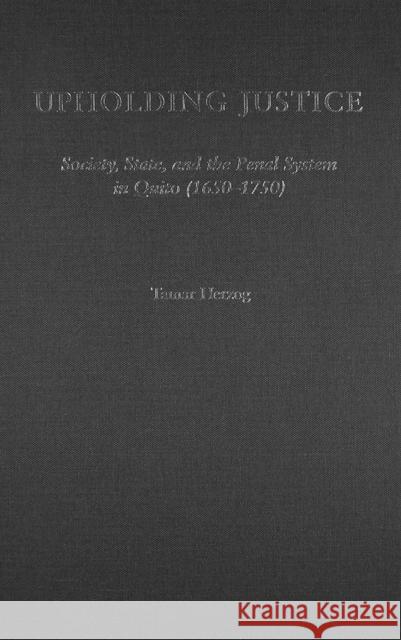Upholding Justice: Society, State, and the Penal System in Quito (1650-1750) » książka
topmenu
Upholding Justice: Society, State, and the Penal System in Quito (1650-1750)
ISBN-13: 9780472113750 / Angielski / Twarda / 2004 / 307 str.
In colonies like Quito, order was typically maintained by local, private law enforcement, while weak and impoverished bureaucratic infrastructures receded into the background. Judicial administration was therefore open to the influences of social networks, rumor, and reputation. Upholding justice was a communal rather than a state-run enterprise, and the dominating rules were social and theological rather than legal.
Herzog's combination of legal and historical analysis challenges the traditional paradigm in which the state was born under Spain's Catholic monarchs and only later exported to Spanish America. Her research reveals a more integrated and less oppositional relationship between the state and early modern society. Including both a specific case study and an innovative framework for the study of interactions between society, law, and the state, Upholding Justice will interest scholars of history, Latin American studies, anthropology, law, and political science.Tamar Herzog is Associate Professor of History at the University of Chicago.











